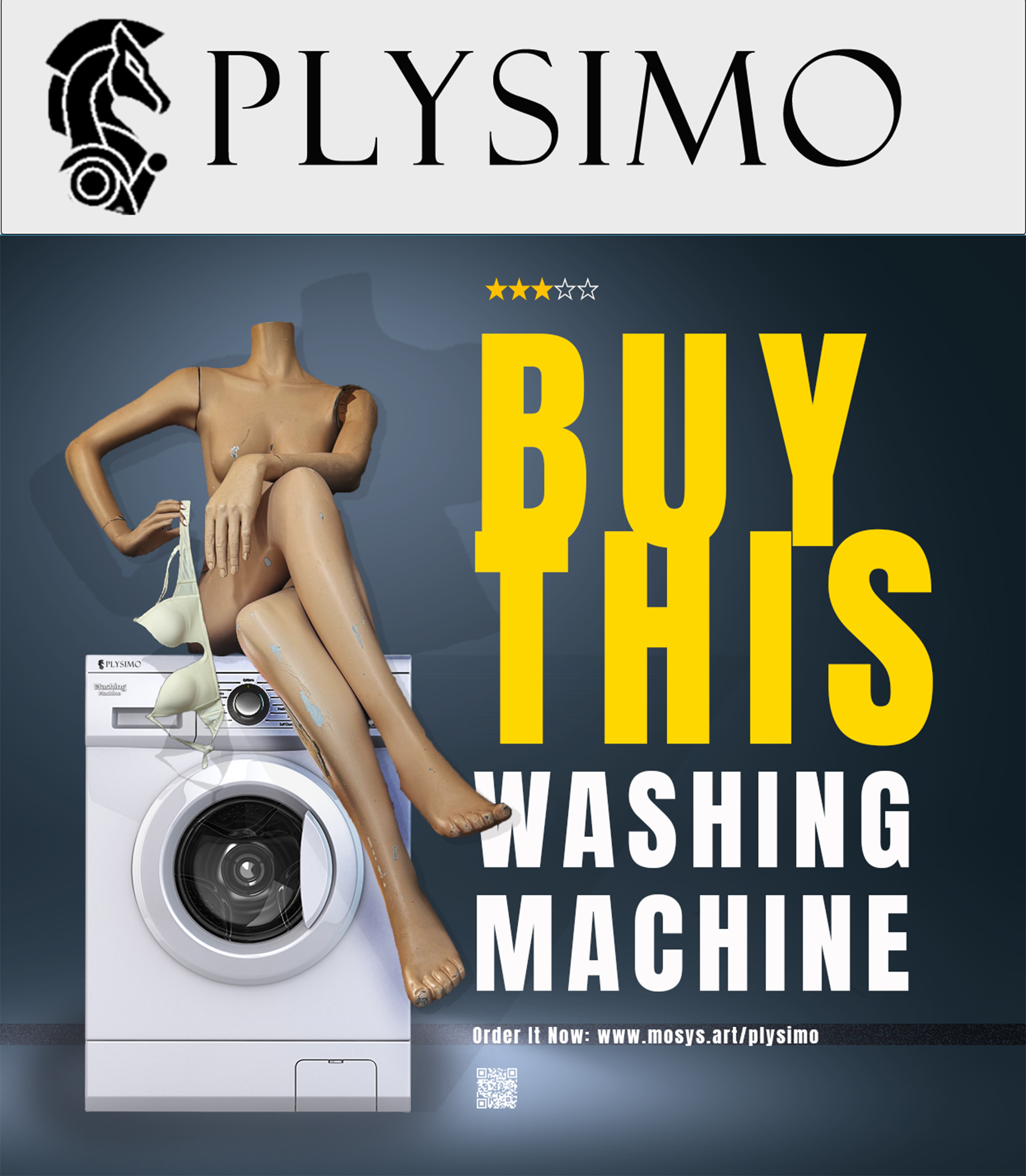In Plysimo Washing Machine I decode the glamour and aspiration of marketing to reveal what an advert actually says: buy this product. Advertising layers desire, aspiration, glamour and sexuality onto the most banal of goods, but when those layers are stripped away what remains is a blunt instruction to consume. This piece is imagined as what you might see if you put on the found x-ray glasses from They Live – a glimpse beneath the surface to the manipulation at work.
This work is part of a series I am developing around white goods and advertising under the imaginary brand Plysimo. The brand is a fiction, yet it is designed to look plausible – echoing the sleek typography and corporate heraldry of high-end European appliances. Plysimo is taken from the Greek word for “washing”, chosen precisely because of its banality. I initially considered the Greek for “rinsing”, which connected strongly with the slang idea of being ‘rinsed’ in the sales process, but it lacked the smooth phonetics of a consumer brand.

The advertisement itself pairs a washing machine with a salvaged mannequin. The mannequin is damaged, chipped, and imperfect – a direct counterpoint to the polished gloss of the advertising aesthetic. She sits provocatively atop the machine, bra in hand, playing into the gendered tropes of advertising imagery while also undermining them. Is she undressing for the wash, or for something spicier, as advertisers often insinuate? The absurdity lies in the suggestion that a washing machine is not just a machine, but a conduit to glamour, sex appeal and desirability.
The composition borrows heavily from real advertising layouts: the bold imperative headline, the heritage-style logo, the star rating, the QR code and the call to action at the bottom. These details give it the authority of a genuine advert at first glance, but with a mannequin that refuses to play her role as polished sex symbol, the cracks begin to show.
At its core, this piece is a critique of the way marketing manipulates consumers into attaching emotion, status, and sexuality to lifeless objects. By creating a parody brand and producing a polished but absurd advertisement, I aim to expose the naked imperative beneath consumer culture. Plysimo will expand into a broader series around white goods, each pushing at the tension between banality, branding, and desire.
